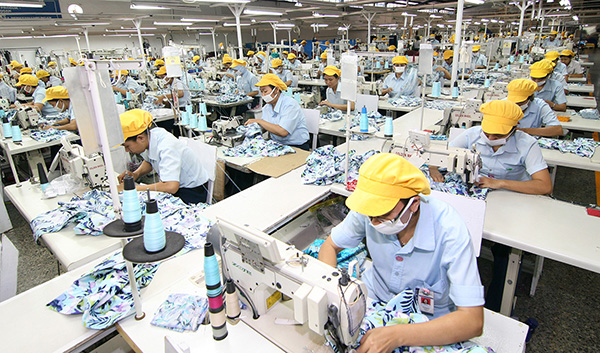The textile and apparel industry is playing an important role in the Indonesian economy. This industry is one of the biggest foreign exchange earners for the country and also provides employment opportunities to more than 3.7 million Indonesian local communities which becomes their livelihood. Furthermore, this industry contributes to almost 7% of the country’s gross domestic product (GDP).
However, this industry also faces several severe challenges. The COVID-19 pandemic has not only severely affected the industry (causing approximately 65% of textile workers to be temporarily sent home), but there is also a lack of new investment in the industry. Meanwhile, there is always a must to develop the business in terms of design, material, and quality in order to compete with more and more imported textile products from abroad (especially from China). The ease of selling imported textile and apparel in Indonesia’s marketplaces makes the situation even worse.
Despite the current challenges, Indonesia is still one of the world’s largest textile manufacturers. According to the global textile production in 2019 (before the COVID-19 pandemic hit the entire world economy), Indonesia ranked sixth; a good ranking, although in terms of global market share, Indonesia is far behind the world’s number one, China. China’s lead is mainly due to the increase in production and sales of its cotton, yarn, fiber, and other finished products or materials such as clothing.
According to the data from Grand View Research, the global textile market is expected to expand at a compound annual growth rate (CAGR) of 4.4% from 2021 to 2028. As the demand for apparel in the fashion industry continues to grow, further expansion of e-commerce platforms is expected to drive the market during the forecast period.
Before the COVID-19 pandemic, the USA, Japan, Germany, and Australia were the largest export countries for Indonesian textile and apparel products.
What to consider before moving your procurement to Indonesia?
Moving your procurement to Indonesia is a great decision because Indonesia has many qualified and competitive textile and apparel suppliers. However, finding a supplier who meets your standards can be quite challenging, especially for the first time you are importing textile and apparel from Indonesia.
You have to make sure about every detail of your supplier before placing an order in bulk, such as the raw materials and key production components, quantity status, product appearance and specification (color, dimension, smell, etc.), marking on the packaging of raw materials, understanding of your demands by the factory, samples comparison, production schedule and processes, and last but not least in-house quality control checks. This is necessary to do to avoid a scam or wasting time with a fraud company.
Conducting a Pre-Production Inspection for textile and apparel in Indonesia will help you know more about your suppliers to not end up working with a manufacturer that cannot meet your needs.

